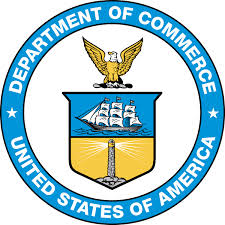 (Washington, D.C.) (May 5, 2014) – The U.S. Department of Commerce today announced its preliminary determinations that imports of grain-oriented electrical steel (“GOES”) from China, the Czech Republic, Germany, Japan, Poland, Russia, and South Korea are being sold at less than fair value (or “dumped”) in the United States. As a result, the Commerce Department will instruct U.S. Customs and Border Protection (“CBP”) to begin requiring U.S. importers of GOES from these seven countries to deposit estimated antidumping duties at the time of importation as follows:
(Washington, D.C.) (May 5, 2014) – The U.S. Department of Commerce today announced its preliminary determinations that imports of grain-oriented electrical steel (“GOES”) from China, the Czech Republic, Germany, Japan, Poland, Russia, and South Korea are being sold at less than fair value (or “dumped”) in the United States. As a result, the Commerce Department will instruct U.S. Customs and Border Protection (“CBP”) to begin requiring U.S. importers of GOES from these seven countries to deposit estimated antidumping duties at the time of importation as follows:
Country Dumping Margins
China 159.21 percent
Czech Republic 10.35 – 11.45 percent
Germany 133.70 – 241.91 percent
Japan 93.36 – 172.30 percent
Poland 78.10 – 99.51 percent
Russia 68.98 – 119.88 percent
South Korea 5.34 percent
The Commerce Department also reached affirmative preliminary critical circumstances findings with respect to Poland and Russia.
The Commerce Department’s determinations follow the filing, on September 18, 2013, of antidumping and countervailing duty petitions by domestic GOES producers AK Steel Corporation (NYSE: AKS) and Allegheny Ludlum, LLC d/b/a ATI Flat Rolled Products, an Allegheny Technologies company (NYSE: ATI), as well as the United Steelworkers (“USW”), which represents workers engaged in the production of GOES at ATI Flat Rolled Products. The International Union, United Automobile, Aerospace and Agricultural Implement Workers of America (“UAW”), which represents workers engaged in the production of GOES at AK Steel Corporation, subsequently expressed its support for the petitions. On March 5, 2014, the Commerce Department announced its preliminary determination that imports of GOES from China benefit from subsidies bestowed by the Government of China, resulting in a preliminary countervailing duty margin of 49.15 percent of the value of the imported steel.
Richard J. Harshman, Chairman, President and Chief Executive Officer of ATI, said, “We are pleased that these cases have taken another major step forward. GOES is essential to the integrity and efficiency of the U.S. electrical energy distribution grid. The findings by the Department of Commerce support our belief that the respondent foreign producers have been violating US trade laws and WTO rules with their commercial practices.”
“AK Steel applauds the Commerce Department’s preliminary ruling that imports of grain-oriented electrical steel are being dumped into the United States,” said James L. Wainscott, Chairman, President and CEO of AK Steel. “These determinations are an important step in ensuring that our foreign competitors play by the rules of fair trade.”
Leo W. Gerard, International President of the United Steelworkers, commented, “The USW appreciates the decision by the Commerce Department which ultimately will help save the hundreds of family supportive jobs in this important American industry.”
David A. Hartquist, of Kelley, Drye & Warren LLP, counsel to the domestic industry, stated, “We are very pleased with the Commerce Department’s affirmative preliminary determination that producers of grain-oriented electrical steel in China, the Czech Republic, Germany, Japan, Poland, Russia, and South Korea are selling their merchandise in the United States at significant dumping margins. The U.S. grain-oriented electrical steel industry has suffered lost sales and reduced profitability due to unfairly traded imports from these countries, and relief is needed to counteract the significant injury that is being caused by the unfairly traded imports.”
The next step in the trade action will be the Commerce Department’s verification of factual information submitted by producers in the Czech Republic and South Korea. There will then be an opportunity for parties to submit case and rebuttal briefs to the Commerce Department and to participate in a hearing. Following these events, the Commerce Department will issue its final antidumping and countervailing determinations. The current deadline for the announcement of these final determinations is July 16, 2014.
GOES is a flat-rolled alloy steel product that contains by weight at least 0.6 percent but not more than 6 percent of silicon, not more than 0.08 percent of carbon, and not more than 1 percent of aluminum. The petitions cover GOES that is sold in either sheet or strip form, in coils or in straight lengths. GOES is manufactured using a specialized rolling and annealing process that yields grain structures uniformly oriented in the rolling (or lengthwise) direction of the sheet, enabling it to conduct a magnetic field with a high degree of efficiency. Based on these unique product characteristics, GOES is used primarily in the production of laminated cores for large and medium-sized electrical power transformers and distribution transformers.
The petitioners are represented in these actions by David A. Hartquist and John M. Herrmann of the law firm Kelley Drye & Warren LLP.
